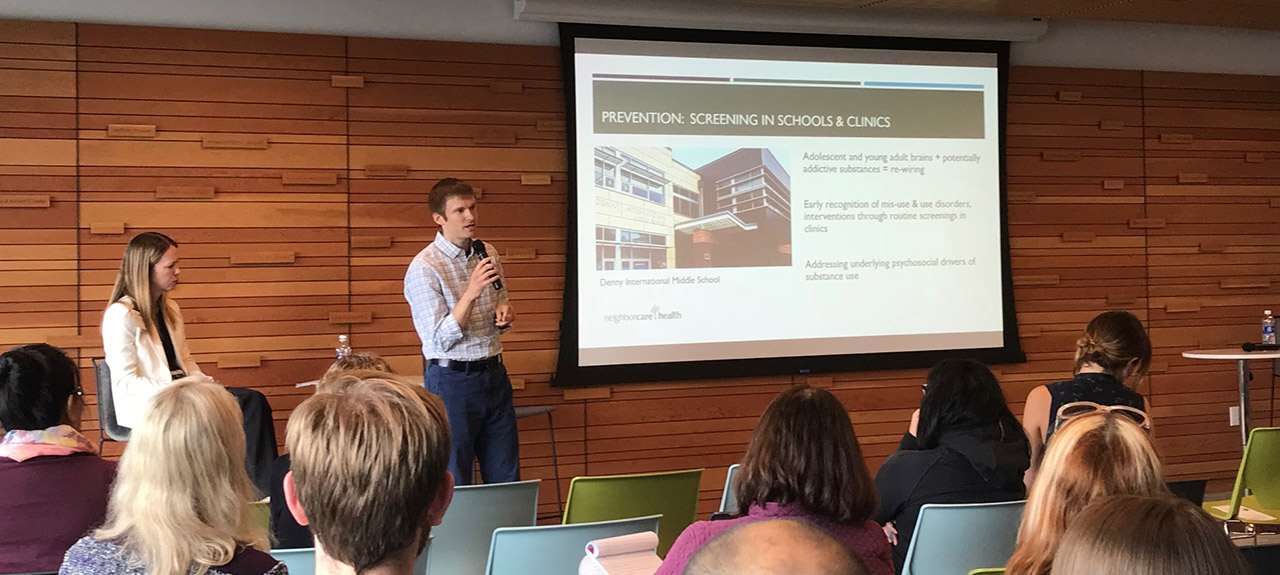Event with Neighborcare Health shows how Medication Assisted Treatment is saving lives
By Cedric Davis, Senior Philanthropic Advisor
Seattle Foundation and Neighborcare Health hosted an education session, Responding to the Opioid Crisis, to share how Medication Assisted Treatment, combined with wrap-around care, is saving lives and changing outcomes for those suffering from opioid use disorder.
The opioid addiction crisis has been deemed a public health crisis by King County, where more than 200 people died in 2016 from opioid overdoses, including heroin, oxycodone and fentanyl. Nationally, the opioid epidemic has been declared an emergency by the federal government. According to the Centers for Disease Control (CDC), opioids—prescription and illicit—are the main driver of drug overdose deaths. Nationally, opioids were involved in 42,249 deaths in 2016, and opioid overdose deaths were five times higher in 2016 than 1999.
Neighborcare Health is the city’s largest provider of primary medical, dental, and behavioral health services for low-income and uninsured families and individuals. They provide health care by treating the whole patient, and practice a wrap-around model of care to help address all of their patients’ needs. As the opioid crisis grows in Seattle and King County, Neighborcare’s approach of providing treatment without judgment is helping to treat those suffering from this addiction.
The panel featured Meredith Vaughan, Neighborcare Health’s Chief Operating Officer; Dr. Richard Waters, who leads their Medication Assisted Treatment program; and Caleb Banta-Green from the Alcohol and Drug Abuse Institute at the University of Washington.
Vaughan shared how Neighborcare leveraged research and evidence-based practices to start a pilot project in 2014 to provide Medication Assisted Treatment for opioid use disorder in their primary care clinics. The primary care environment helps reduce the stigma around seeking treatment, since the patient does not need to go to a specialized addiction treatment facility. Neighborcare providers prescribe opioid blockers like buprenorphine, which Banta-Green said reduces mortality rates by 50 to 79 percent, and also curbs criminal activity. At the same time, their behavioral health team provides counseling and long-term support for clients to make healthy life changes.
To date, the program has been successful in increasing the number of patients who are receiving treatment and services, Waters said. Individual results have been mixed but patients are seen regularly by the same care team. Some patients who have stability or employment in their daily lives may do very well and can successfully manage their addiction. Other patients do experience setbacks but the treatment team brings compassion and persistence to the care so that people keep coming back.
For more information about opioid disorder treatment and in Washington state, including how to help those suffering from this addiction and how to support their families, visit www.stopoverdose.org.

